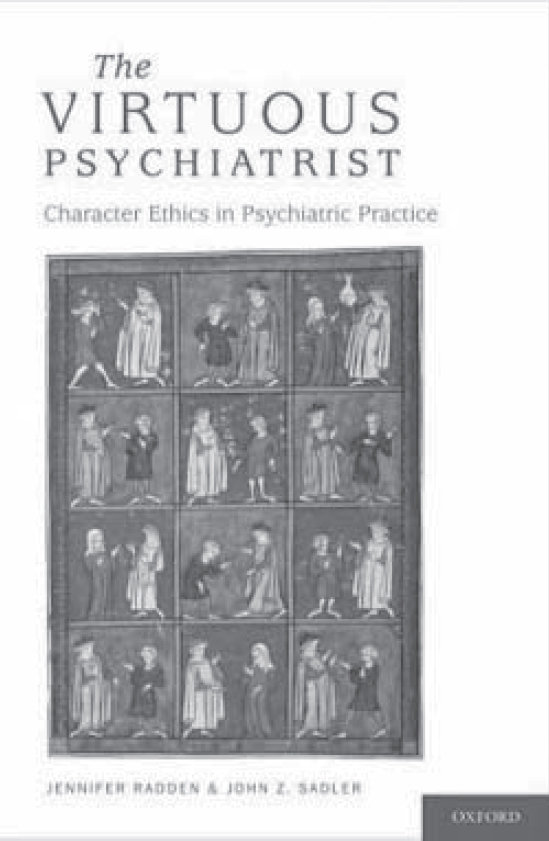
This is a book on psychiatric ethics based on the moral framework traditionally associated with Aristotle. It is written by an academic philosopher and a psychiatrist.
‘Virtue ethics’ holds that right conduct is founded on traits of character rather than adherence to rules, although these may also have their place. Such traits can be developed by training and practice (habituation). Having been eclipsed for some time by the rival approaches of consequentialism (e.g. the English Utilitarians) and deontology (following Kant), the Aristotelian approach has enjoyed a renaissance in recent decades and the authors argue, successfully in my view, that it has particular relevance to psychiatry.
The authors start by making the case for specifically psychiatric ethics, closely related to general medical ethics but tailored to the psychiatric context with its particular moral dilemmas, for example those relating to compulsory detention and treatment, issues of sex and gender and the close personal relationship between doctor and patient which can lead to abuse of the skewed power balance. They also discuss the latent ethical implications of psychiatric diagnosis with its risks of invalidation and stigma.
They accept that psychiatric virtues are nested within professional virtues which are embedded within those appropriate to the pursuit of the general good. Among psychiatric virtues, they discuss trustworthiness, gender sensitivity, empathy, respectfulness, genuine personal warmth, self-knowledge, integrity, hopeful patience and authenticity. They coin a word, ‘unselfing’, to describe a quality unique to the psychiatric encounter and they repeatedly emphasise a virtue (or meta-virtue), recognised by Aristotle, of phronesis or practical wisdom.
It is interesting that the Greek arete, conventionally translated as ‘virtue’ in the Aristotelian context, can also mean ‘excellence’. This is important because some of the qualities Radden & Sadler commend could be seen as technical skills rather than moral virtues. If the desired end facilitated by the application of traditional virtues is that of the good life, often identified with human flourishing (eudaemonia), then the goal of the psychiatric virtues could be seen as the more limited one of healing in a clinical sense. Radden & Sadler are unwavering in their conviction that the doctor–patient relationship is the crucial ingredient in this process and that this incorporates irreducibly moral elements. Their discussion of these complex issues is thoughtful and scholarly yet readable and accessible.
The book is a timely antidote to an excessively technological psychiatry and one might hope that journal clubs could find some time for it in addition to the usual diet of evidence-based medicine.





eLetters
No eLetters have been published for this article.